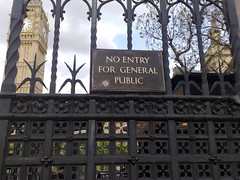Newsletter February 2012
In this newsletter:
- a wrap-up of the past Open Tea and announcement of the next one.
- an update on international aid data networking
- current developments on the IATI NGO working group
Open Tea
On December the 8th the Open for Change network had its first Open Tea at the Amlab in Amterdam, to look back at the past year and discuss where we will be heading in 2012.
Mark Tiele Westra from Akvo presented openaid.nl, an initiative that makes open data on Dutch development aid visualized and searchable.
Marijn Rijken from TNO informed and invited us to participate on a research project on the effects of open data for the development sector.
We discussed the organization of the Open for Change network. Evident in the discussion was the important role the Open for Change network holds in connecting, exchanging and supporting open data initiatives and knowledge in the development sector. How this role should be filled in is something we are working on in 2012.
We want to thank the 1%CLUB, Akvo and TextToChange for hosting the open tea in the gorgeous Amlab, and hope to see you there again at the next Open Tea: March 8th, 15:00- 17:00 and after that Open drinks!
International networking
At various meet-ups at conferences in 2011, we discussed ways to strengthen the international network of open aid data activists.
In November, we submitted a proposal for a European Aid Data Network to the EuropeAid budget line of the European Commission, led by AidInfo in the UK, with Partos (NL), FORS (CZ), ACEP (PT), IGO (PL) and the Open Knowledge Foundation (UK). We hope to hear by early March whether we are invited to submit a full proposal.
In the meantime, AidInfo has asked Claudia Schwegmann of OpenAid.de to continue building out this emerging European network. We had a first conference call last Tuesday, and plan to have the next one on March 2nd.
To create joint channels of communication, we invite you all to:
- Join the open-development mailing list to discuss international open aid data: http://lists.okfn.org/mailman/listinfo/open-development
- Track our guide of open aid data-related events, and submit yours: http://lanyrd.com/guides/open-aid-data/
IATI and NGOs
The IATI NGO Working Group is a CSO-led forum that was created with the approval of the IATI Steering Committee to discuss the application of the IATI Standards to the work of CSOs and to present practical proposals on CSO-specific approaches to publication of IATI compatible data.
The CSO Working Group is co-chaired by Beris Gwynne, representing the International NGO Charter of Accountability Company, and Brian Tomlinson, representing the CSO Open Forum.
Both Partos and Open for Change are represented in the group, and we’re aiming to organise an “intervision meeting” for Dutch NGOs in March.
The next peer reference meeting is planned for beginning of March. The first general consultation will hopefully take place in April 2012. Read more on our blog!
Recommended reading
- Francis Maude ’s speech to the World Bank about the Open Government Partnership and the experiences and ambitions in the UK Government
- The Data Journalism Awards are open for submissions.
- Exposing Data: Art Slash Activism – A post-event report of a public discussion at the CIS office in Bangalore, with videos
- The Dutch data landscape in 32 interviews and a survey (the report is in English)
Got news?
If you want to bring in subjects or interesting news for next newsletter, you are more than welcome: send your contributions to info@openforchange.info

 secretlonden123")
secretlonden123")